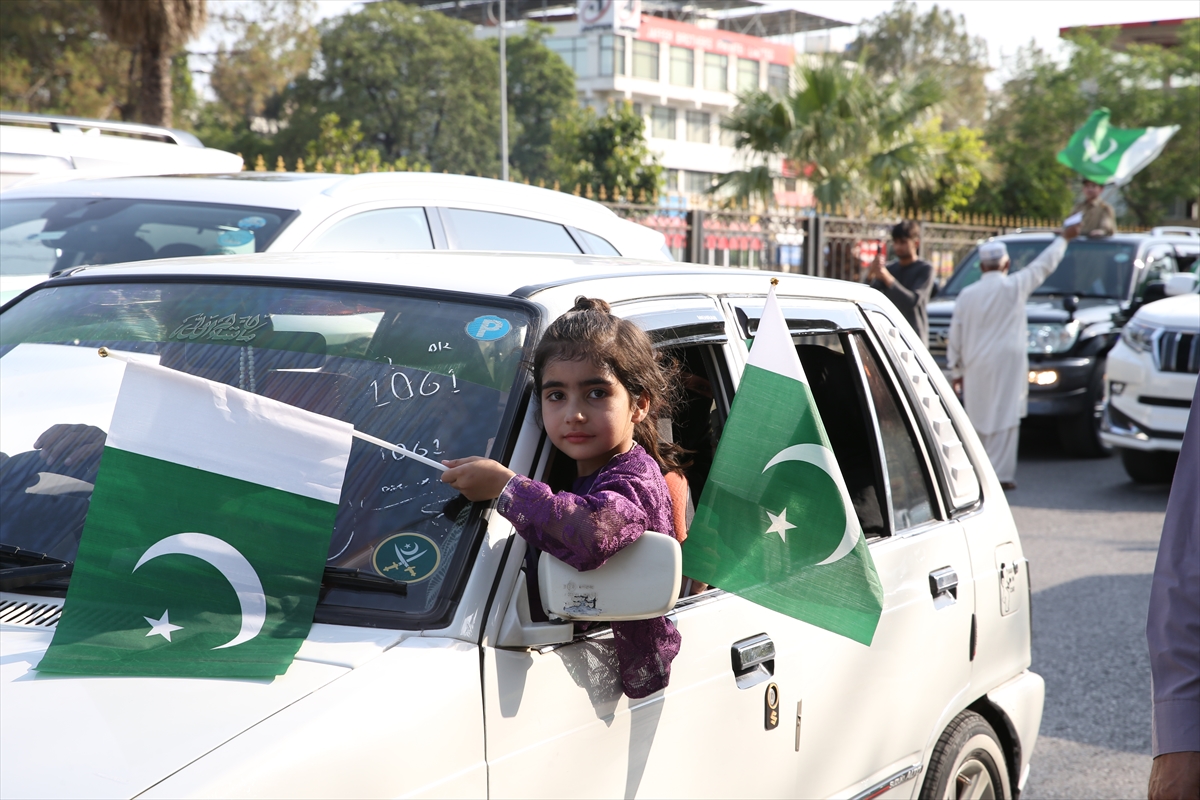
By Nadine Osman
London, (The Muslim News): India and Pakistan have agreed to a full and immediate ceasefire.
US President Donald Trump on Saturday said that both Pakistan and India have reached a “full and immediate” ceasefire after days of intense fighting.
“After a long night of talks mediated by the United States, I am pleased to announce that India and Pakistan have agreed to a FULL AND IMMEDIATE CEASEFIRE. Congratulations to both Countries on using Common Sense and Great,” Trump said on social media.
India’s Foreign Minister, Vikram Misri welcoming the ceasefire said: “The director general of military operations in Pakistan called the director general of military operations in India at 15:35, earlier this afternoon. It was agreed between them that both sides would stop all fighting and military action on land and in the air and sea with effect from 17:00 Indian standard time today.”
Pakistan’s Foreign Minister, Ishaq Dar said India and Pakistan have agreed to a ceasefire with immediate effect. In a post on X, Dar, who is also Pakistan’s Deputy Prime Minister, said: “Pakistan and India have agreed to a ceasefire with immediate effect. Pakistan has always strived for peace and security in the region, without compromising on its sovereignty and territorial integrity!”
The development came hours after Pakistan launched a retaliatory operation on Saturday morning in response to Indian military strik
On Saturday, May 10, Pakistan launched retaliatory military strikes against India, including a missile storage site in India’s Beas region, as part of its operation “Bunyan-un-Marsoos” (Iron Wall). The strikes were a direct response to India’s “Operation Sindoor,” which took place on May 6 and resulted in 33 casualties and 62 injuries, according to the Pakistan Army.
Pakistan’s military reported that the retaliatory action involved airstrikes on Indian airbases and the use of Al-Fatah missiles, named in remembrance of Pakistani children who lost their lives during Indian military strikes on the night of May 6-7. The Pakistani army’s statement, as reported by state-run Pakistan Television (PTV), indicated that the strikes targeted “all those (Indian) air bases from where Pakistan was attacked” and that Pakistani drones had been deployed over New Delhi.
Foreign Minister Ishaq Dar stated, “Pakistan launched the strikes as a last resort after India’s continued escalations.” He further added, “When and where will it stop, it all depends on what India wants.”
The conflict between the two nations has escalated further along the Line of Control (LoC), with Pakistan reportedly using artillery and drones in multiple border regions, including Jammu and Kashmir. In return, India’s air defence systems intercepted several incoming drone strikes, successfully preventing significant damage. Both nations continue to accuse each other of targeting civilian infrastructure, with India reporting shelling incidents that resulted in civilian casualties.
India’s Foreign Secretary, Vikram Misri, condemned Pakistan’s actions, describing them as “provocative and escalatory.” He reported that Pakistan attempted to target air bases in Punjab and that troops had been observed moving towards forward areas.
Meanwhile, Colonel Sofiya Qureshi stated that Pakistan’s military had targeted more than 26 locations, damaging Indian air force facilities in Udhampur, Pathankot, Adampur, Bhuj, and Bathinda.
Both nations have reported multiple civilian casualties due to artillery exchanges. On May 10, the Indian military confirmed that five civilians were killed and seven injured in “unprovoked shelling” by Pakistan in the Jammu and Kashmir region. Similarly, Pakistan reported the interception of 77 Israeli-made Harop drones launched by India, which targeted both civilian and military sites.
China, expressing concern over the ongoing conflict, urged both countries to exercise restraint and avoid further escalation. The Chinese Foreign Ministry called on both India and Pakistan to “return to the track of political settlement through peaceful means.”
The United States also urged for de-escalation, with Secretary of State Marco Rubio emphasizing the need for both countries to engage in dialogue. “Secretary of State Marco Rubio spoke with Pakistani Army Chief Asim Munir earlier today. He continued to urge both parties to find ways to de-escalate and offered U.S. assistance in starting constructive talks,” said State Department spokesperson Tammy Bruce.
The G7 and the European Union issued a joint statement on May 9, calling for an immediate de-escalation of tensions and urging both countries to engage in direct dialogue towards a peaceful resolution. The statement underscored the need for both sides to avoid actions that would further destabilize the region.
Prime Minister Shehbaz Sharif convened an emergency meeting of Pakistan’s National Command Authority on May 10, a body responsible for overseeing nuclear operations, reflecting the seriousness of the ongoing conflict. Indian officials also remained on high alert, with military spokespersons confirming the readiness of their forces.
This recent escalation follows a series of attacks that began with India’s strikes on May 6, which targeted what India described as “terrorist infrastructure” within Pakistan, which killed at least 31 civilians and left 57 others injured. Twelve of Missile strikes, India claimed as “retaliation” for the April 22 terrorist attack in Pahalgam, Indian-administered Kashmir, which killed 26 tourists. India blamed Pakistan for the attack, citing cross-border links, but Pakistan denied involvement and offered to cooperate in an international investigation. India has as yet not provided any evidence of Pakistan involvement in the attacks.
The military exchanges have caused widespread concerns about the potential for further conflict between the two nuclear-armed neighbours. The international community continues to call for restraint, urging both sides to seek diplomatic solutions to prevent a broader and more destructive confrontation.
Photo: People holding Pakistani flags gather to show support for the Pakistani army after the ceasefire between Pakistan and India on May 10, 2025 in Islamabad, Pakistan. Photojournalist: Muhammed Semih Uğurlu/AA]